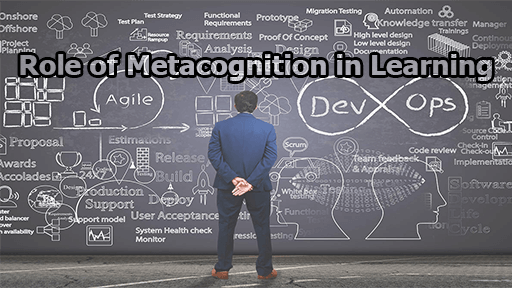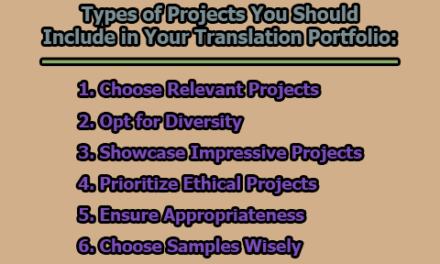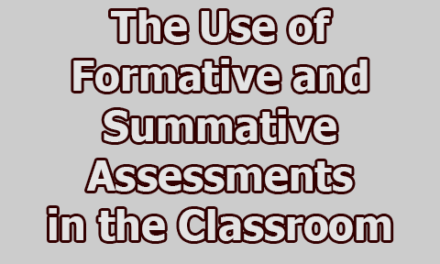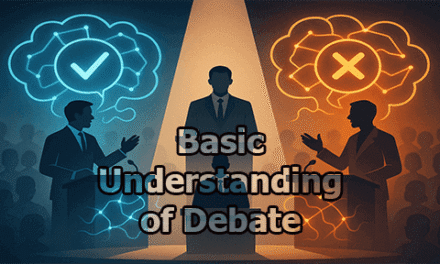Role of Metacognition in Learning:
Metacognition is a multifaceted and essential cognitive process that plays a fundamental role in learning. It involves thinking about thinking, and it allows individuals to understand and regulate their own cognitive processes, which in turn, enhances learning outcomes. Metacognition encompasses a wide range of activities, including self-awareness, self-monitoring, and self-regulation. In this exploration, we will delve into the role of metacognition in learning, its various components, developmental aspects, and strategies to improve metacognitive skills. By the end of this discussion, you will have an understanding of how metacognition can be harnessed to optimize the learning process.
Section 1: The Basics of Metacognition:
1.1 What is Metacognition?
Metacognition is often described as “thinking about thinking” or “knowing about knowing.” It refers to the ability to reflect upon and control one’s cognitive processes. In simpler terms, it is the conscious awareness and understanding of how one learns, thinks, and remembers. When individuals engage in metacognitive activities, they gain insights into their thought processes, learning strategies, and problem-solving approaches. This self-awareness is a pivotal aspect of successful learning.
1.2 Components of Metacognition: Metacognition can be broken down into two main components:
1.2.1 Metacognitive Knowledge: Metacognitive knowledge involves understanding one’s cognitive processes, learning strategies, and the factors that influence learning. It can be further divided into three subcomponents:
- Declarative Knowledge: This is the awareness of what one knows and doesn’t know. It involves recognizing gaps in one’s knowledge and identifying the need for further learning.
- Procedural Knowledge: Procedural knowledge relates to knowing how to use various cognitive strategies effectively. It includes knowing when and how to apply specific learning techniques, such as summarizing, elaborating, or organizing information.
- Conditional Knowledge: Conditional knowledge is an understanding of when and why to use certain strategies. It involves recognizing the contextual factors that may influence the effectiveness of a particular learning approach.
1.2.2 Metacognitive Control: Metacognitive control involves the ability to regulate and adapt one’s cognitive processes. It consists of the following key elements:
- Planning: The process of setting goals, selecting appropriate strategies, and organizing one’s approach to a task.
- Monitoring: Continuously assessing one’s understanding and progress during a learning task. This includes recognizing when comprehension is lacking and when adjustments are necessary.
- Evaluation: Making judgments about the effectiveness of one’s learning strategies and outcomes. This step leads to the modification of strategies based on performance and understanding.
Section 2: The Development of Metacognition:
Metacognition is not a static trait; it evolves and matures over time. Understanding its development is crucial in fostering effective learning throughout one’s lifespan.
2.1 Metacognition in Childhood: In early childhood, metacognition is limited, as children are still developing their cognitive abilities. However, there are some signs of metacognitive development, even in young children. For example, they may ask questions to better understand a concept or show awareness of their own learning preferences.
2.2 Metacognition in Adolescence: During adolescence, metacognitive abilities become more sophisticated. Adolescents become better at planning and monitoring their learning, which helps them excel in school. They begin to understand the value of different strategies and are more likely to adjust their approaches based on their self-evaluation of their learning outcomes.
2.3 Metacognition in Adulthood: Metacognition continues to develop throughout adulthood. Adults refine their metacognitive skills through years of experience and learning. They become more adept at setting goals, self-monitoring, and making informed judgments about their learning strategies. This ongoing development of metacognition is particularly crucial in professional and lifelong learning contexts.
Section 3: The Significance of Metacognition in Learning:
Metacognition plays a pivotal role in learning across various domains, and its significance can be observed in several aspects of the learning process.
3.1 Improved Learning Outcomes: One of the primary benefits of metacognition is its positive impact on learning outcomes. When individuals are aware of their own learning processes, they can select and adapt strategies that are most effective for them. This leads to enhanced comprehension, retention, and application of knowledge.
3.2 Enhanced Problem Solving: Metacognition is closely linked to problem-solving skills. When individuals engage in metacognitive activities, they are more likely to approach problems systematically, evaluate potential solutions, and adjust their strategies if necessary. This leads to more effective and efficient problem-solving.
3.3 Self-Regulation: Metacognition promotes self-regulation, which is the ability to control one’s own behavior and learning. By monitoring their progress and adjusting their strategies, individuals can stay on track with their learning goals. This self-regulation is essential for maintaining motivation and perseverance, even in the face of challenging tasks.
3.4 Critical Thinking: Critical thinking is a key component of metacognition. When individuals think critically about their own thinking processes, they develop the ability to analyze, evaluate, and make informed judgments about information and ideas. This is a critical skill in the modern information age, where the ability to discern reliable information from misinformation is paramount.
Section 4: Strategies to Improve Metacognitive Skills:
Given the importance of metacognition in learning, it is valuable to explore strategies and techniques that can help individuals enhance their metacognitive abilities.
4.1 Think-Alouds: Think-alouds are a common instructional strategy used to promote metacognition. In a think-aloud, a learner verbalizes their thought processes as they engage in a learning task. This can be particularly beneficial for educators, as it provides insights into a student’s thinking and allows them to guide the student toward more effective strategies.
4.2 Metacognitive Questioning: Metacognitive questioning involves asking oneself questions about the learning process. For example, students might ask, “Do I understand this concept?” or “What strategies can I use to remember this information?” By posing these questions, learners engage in metacognitive self-assessment and encourage reflection on their own learning.
4.3 Concept Mapping: Concept mapping is a visual representation of knowledge that can help learners organize and structure their understanding of a topic. Creating concept maps requires thinking about the relationships between different concepts, which is a metacognitive process. This technique aids in both knowledge acquisition and self-assessment.
4.4 Self-Testing: Self-testing involves regularly assessing one’s knowledge and understanding of a subject. By quizzing themselves on the material, learners can identify areas of strength and weakness, which informs their study and learning strategies.
4.5 Goal Setting: Setting clear and achievable learning goals is a fundamental metacognitive skill. Learners who establish specific objectives can better plan their learning processes and assess their progress toward those goals.
4.6 Reflection: Regularly reflecting on one’s learning experiences is a powerful metacognitive practice. This can involve journaling, discussing lessons learned with peers or mentors, and considering what strategies were effective and what could be improved.
Section 5: Metacognition and Educational Settings:
Metacognition has profound implications for educational settings, as it can inform teaching practices and contribute to the development of more effective learning environments.
5.1 Metacognition in Teaching: Educators can play a significant role in fostering metacognitive development in their students. By incorporating metacognitive strategies into their teaching methods, instructors can help students become more self-aware and autonomous learners. For instance, teachers can encourage students to reflect on their learning processes, set goals, and assess their understanding regularly.
5.2 Metacognition in Assessment: Assessment is a crucial component of education, and metacognition can influence how students perform on assessments. Students who are proficient in metacognition are better equipped to prepare for and take exams. They understand the importance of self-monitoring during an assessment and can adjust their strategies as needed to optimize their performance.
5.3 Metacognition and Technology: Technology can be a powerful tool for promoting metacognition in educational settings. Educational apps and software can provide immediate feedback to students, helping them monitor their progress and adjust their learning strategies accordingly. Online discussion forums and collaborative tools can also encourage metacognitive reflection and critical thinking.
Section 6: Challenges and Limitations of Metacognition:
While metacognition offers numerous benefits in the learning process, it is not without its challenges and limitations.
6.1 Overconfidence: One common limitation of metacognition is overconfidence. Some individuals may have an inflated sense of their own knowledge and abilities, leading them to underestimate the difficulty of a task or overestimate their understanding. This can hinder effective learning and problem-solving.
6.2 Limited Self-Regulation: Not all learners have well-developed self-regulation skills. Some students may struggle to monitor their own progress and make adjustments to their learning strategies. This limitation can lead to a lack of motivation and difficulties in staying on track with their learning goals.
6.3 Cultural and Individual Differences: Cultural and individual differences can influence metacognitive development. What is considered effective metacognition can vary across cultures, and individuals may have different approaches to self-assessment and self-regulation. Recognizing and addressing these differences is essential in educational settings.
6.4 Cognitive Load: Metacognitive activities can sometimes add to the cognitive load of a learning task. For example, thinking about one’s thinking processes while simultaneously processing new information can be mentally taxing. Learners need to strike a balance between metacognition and the primary learning task.
In conclusion, metacognition, the ability to think about thinking, is a crucial aspect of the learning process. It encompasses both metacognitive knowledge and metacognitive control, allowing individuals to become more self-aware and autonomous learners. Through its development, metacognition evolves from childhood through adolescence into adulthood, contributing to improved learning outcomes, enhanced problem-solving skills, self-regulation, and critical thinking.
To improve metacognitive skills, learners can employ strategies like think-alouds, metacognitive questioning, concept mapping, self-testing, goal setting, and reflection. These strategies enable individuals to gain a better understanding of their cognitive processes and optimize their learning.
In educational settings, metacognition can inform teaching practices and assessment methods, ultimately creating more effective learning environments. However, metacognition is not without its limitations, such as overconfidence, limited self-regulation, cultural and individual differences, and cognitive load.
Understanding and harnessing metacognition is a continuous journey. As individuals become more proficient in metacognitive skills, they are better equipped to learn, problem-solve, and think critically, not just in educational settings but throughout their lives. Metacognition is a powerful tool for lifelong learning and personal growth.
Frequently Asked Questions [FAQs]:
What is metacognition?
Metacognition is the process of thinking about thinking. It involves being aware of your own cognitive processes, understanding how you learn, and using this knowledge to improve your learning strategies.
Why is metacognition important in learning?
Metacognition is essential in learning because it helps individuals understand and control their own learning processes. It leads to improved learning outcomes, better problem-solving skills, and enhanced critical thinking.
What are the components of metacognition?
Metacognition has two main components: metacognitive knowledge and metacognitive control. Metacognitive knowledge involves understanding your cognitive processes, learning strategies, and contextual factors. Metacognitive control involves planning, monitoring, and evaluating your learning.
How does metacognition develop over a lifetime?
Metacognition evolves from childhood through adolescence into adulthood. Children begin to show signs of metacognitive development, which becomes more sophisticated during adolescence and continues to refine in adulthood.
What are some practical strategies to improve metacognitive skills?
Strategies include think-alouds, metacognitive questioning, concept mapping, self-testing, goal setting, and reflection. These techniques help individuals become more aware of their thinking processes and enhance their learning.
How can educators foster metacognition in their students?
Educators can promote metacognition by incorporating metacognitive strategies into teaching methods. This includes encouraging students to reflect on their learning, set goals, and regularly assess their understanding.
What challenges and limitations are associated with metacognition?
Challenges include overconfidence, limited self-regulation, cultural and individual differences, and the potential for increased cognitive load when engaging in metacognitive activities.
Can metacognition be applied in online or technology-based learning?
Yes, metacognition can be applied effectively in online and technology-based learning. Technology can provide immediate feedback and opportunities for self-assessment, making metacognition an integral part of e-learning.
How does metacognition impact problem-solving skills?
Metacognition is closely linked to problem-solving skills. When individuals engage in metacognitive activities, they approach problems systematically, evaluate solutions, and adjust their strategies, leading to more effective problem-solving.
Is metacognition a skill that can be improved over time?
Yes, metacognition is a skill that can be developed and improved over time with practice and conscious effort. As individuals become more proficient in metacognitive skills, they become better learners and critical thinkers.
References:
- Flavell, J. H. (1979). Metacognition and cognitive monitoring: A new area of cognitive-developmental inquiry. American Psychologist, 34(10), 906-911.
- Schneider, W., & Artelt, C. (2010). Metacognition and mathematics education. ZDM, 42(2), 149-161.
- Schraw, G., Crippen, K. J., & Hartley, K. (2006). Promoting self-regulation in science education: Metacognition as part of a broader perspective on learning. Research in Science Education, 36(1-2), 111-139.
- Brown, A. L. (1987). Metacognition, executive control, self-regulation, and other more mysterious mechanisms. In F. E. Weinert & R. H. Kluwe (Eds.), Metacognition, motivation, and understanding (pp. 65-116). Lawrence Erlbaum Associates.
- Pintrich, P. R. (2002). The role of metacognitive knowledge in learning, teaching, and assessing. Theory into Practice, 41(4), 219-225.
- Peirce, W. S. (2003). Thinking. In S. Strain, & M. W. Strain (Eds.), The handbook of psychology (pp. 3-26). John Wiley & Sons.
- Veenman, M. V. J., Van Hout-Wolters, B. H. A. M., & Afflerbach, P. (2006). Metacognition and learning: Conceptual and methodological considerations. Metacognition and Learning, 1(1), 3-14.
- Kuhn, D. (2000). Metacognitive development. Current Directions in Psychological Science, 9(5), 178-181.
- Bjork, R. A., Dunlosky, J., & Kornell, N. (2013). Self-regulated learning: Beliefs, techniques, and illusions. Annual Review of Psychology, 64, 417-444.
- Zimmerman, B. J. (2000). Attaining self-regulation: A social cognitive perspective. In M. Boekaerts, P. R. Pintrich, & M. Zeidner (Eds.), Handbook of self-regulation (pp. 13-39). Academic Press.
- Dinsmore, D. L., Alexander, P. A., & Loughlin, S. M. (2008). Focusing the conceptual lens on metacognition, self-regulation, and self-regulated learning. Educational Psychology Review, 20(4), 391-409.
- Paris, S. G., & Winograd, P. (1990). How metacognition can promote academic learning and instruction. In B. F. Jones & L. Idol (Eds.), Dimensions of thinking and cognitive instruction (pp. 15-51). Lawrence Erlbaum Associates.
- Tanner, K. D. (2012). Promoting student metacognition. CBE—Life Sciences Education, 11(2), 113-120.
- Veenman, M. V. J., Wilhelm, P., & Beishuizen, J. J. (2004). The relation between intellectual and metacognitive skills from a developmental perspective. Learning and Instruction, 14(1), 89-109.
- Dunlosky, J., & Metcalfe, J. (2009). Metacognition. Sage Publications.
- Schraw, G., & Moshman, D. (1995). Metacognitive theories. Educational Psychology Review, 7(4), 351-371.
- Weinstein, C. E., & Mayer, R. E. (1986). The teaching of learning strategies. In M. C. Wittrock (Ed.), Handbook of research on teaching (3rd ed., pp. 315-327). Macmillan.
- Artzt, A. F., & Armour-Thomas, E. (1997). Development of a cognitive-metacognitive framework for protocol analysis of mathematical problem solving in small groups. Cognition and Instruction, 15(2), 139-183.

Library Lecturer at Nurul Amin Degree College










